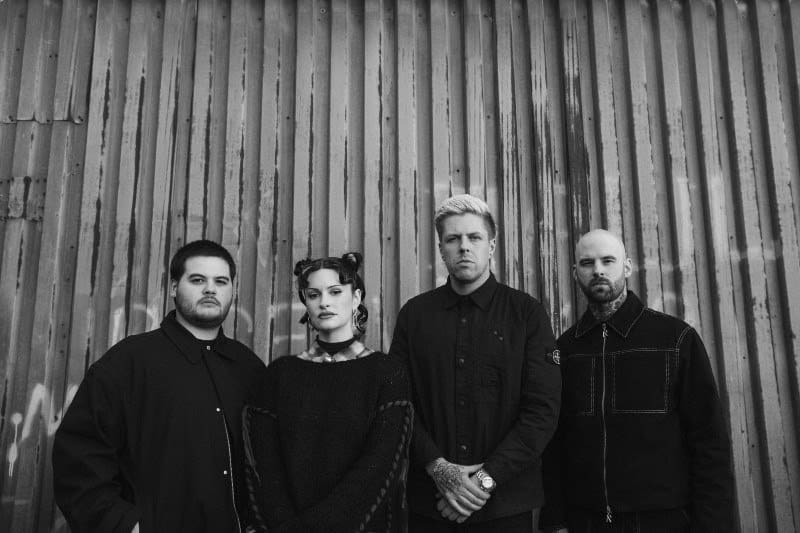Jasmine “JB” Badie has established herself as a true powerhouse in the entertainment industry. Known for her captivating choreography, JB has worked alongside global icons like Beyoncé, Pharrell, Cardi B, Missy Elliott, Ariana Grande, and most recently, Sabrina Carpenter on her sold-out Short n’ Sweet tour. This holiday season, JB‘s creativity will shine once again with the release of the highly anticipated Netflix special, A Nonsense Christmas with Sabrina Carpenter, premiering on Friday, December 6th.
 A true artist, JB‘s remarkable journey is a testament to the power of perseverance and passion. With over three years as Sabrina Carpenter’s trusted choreographer, JB has redefined the art of movement, blending storytelling and choreography in ways that deeply connect with global audiences. Despite being considered a “late bloomer” in the dance world, JB’s path to success proves that trusting the process and embracing one’s unique creative voice can lead to unforgettable artistry.
A true artist, JB‘s remarkable journey is a testament to the power of perseverance and passion. With over three years as Sabrina Carpenter’s trusted choreographer, JB has redefined the art of movement, blending storytelling and choreography in ways that deeply connect with global audiences. Despite being considered a “late bloomer” in the dance world, JB’s path to success proves that trusting the process and embracing one’s unique creative voice can lead to unforgettable artistry.
From her unforgettable performance at the Super Bowl with Beyoncé to her groundbreaking work curating visuals for Netflix, JB has reshaped choreography by intimately connecting with artists and their narratives. This personal approach allows her to create one-of-a-kind performances that captivate millions worldwide.
JB’s big break came as a dancer for Beyoncé’s Super Bowl halftime show, a moment that catapulted her into a career filled with Grammy performances, VMAs, and world tours.
Raised in a small town in Georgia as one of the few girls of color, JB discovered her love for dance in high school, overcoming financial hardships to pursue her dreams. Her journey took her to LA, where she joined a “village” of like-minded dancers and creatives who helped her navigate her unknown career trajectory. From dancer to creative lead, JB has become one of the most sought-after choreographers in the industry.
But JB is more than just choreography—she’s a cultural force. With a deep love for the arts, Broadway, and fashion, she is expanding her creative reach as a storyteller and performance artist. Her story is a powerful reminder that with talent, resilience, and unwavering determination, anything is possible in the entertainment world.
—
Soundsphere’s Dom Smith had the opportunity to chat with the very talented dancer and choreographer Jasmine “JB” Badie. Jasmine shares her journey as a performer, her confidence, faith-driven success, and balance between personal and professional life. She offers advice to young creatives, discusses industry challenges, and shares her passion for storytelling through movement. We hope you enjoy reading the interview.
S] It’s fantastic to sit with you because you’ve got one heck of a career and one heck of a story to share. So, the first question for you is: where did you find your confidence as a performer? You’re working with these world-renowned artists, you’ve been doing it for a long time, and you’re very trusted within the industry. But where does your confidence come from as a performer, as an artist, and effectively as a storyteller as well? Where did that start for you? Where did you find your confidence, as it were?
JB] Oh man, wow. It’s so funny. I was just talking to my last interviewer about this. I think my confidence came from my experience and just checking in on who I am. I have a really great support team. My village has always been at my side, but the confidence had to come from myself. I had to build that on my own and learn from my experiences – becoming more comfortable with myself, my womanhood, and my life, and being able to understand what that was and where that source comes from.
I’m very spiritual. I’m very tapped into who God is, and God works within me, as me. That’s been my moving force. And you know, we all have those moments where we can get down, but I have to remind myself who I am. Doing what I do shows me who I am through it. And as long as I’ve had that my entire life, I’m like, “Wow, I’m unstoppable, baby. You can’t touch this.”
S] Absolutely. I love that. Yeah, it’s great that you have that as well, Jasmine. I think another question from that then is – and I wonder if your faith intersects with this – the idea of success. You’re around a lot of successful people. You are very successful within your industry. Do you wrestle with the idea of success? What does it mean to you as a choreographer, as a performer, and as a person? Are those the same or two different things?
JB] I think they’re the same if they’re coming from the same source. I think it’s about how you are outside of work still being a success. For me, I ask myself, “How do I feel when I go to sleep at night?” That’s success. You’ve got to pivot through that.
I think it goes hand in hand because it’s coming from the same source. How you are at work – how you communicate with people, how you show up for yourself – that’s got to be the same as how you are at home. I want to be happy with that, so I can come home outside of work and feel good like I had a successful day.
To me, a successful day looks like getting the job done while also spreading love, light, and kindness and being the best version of yourself. Taking responsibility for your own emotional stuff, and being able to process it instead of reacting – that’s huge. No one deserves your bad day. I’m a big believer in that. I don’t deserve your bad day, and you don’t deserve mine.
Your trauma is your trauma, you know? Just because you’re having a bad day doesn’t mean I need to bring that bad day into work. That’s what makes it very one and the same – how you handle yourself in every aspect of life.

S] Okay, yeah, I think that’s a good approach. One of the things we do a lot in our work is interact with young creatives who want to get into music, entertainment, or choreography. That sort of temperament is really, really useful, Jasmine. What would be some of the things you’d want to see for any young choreographers or performers coming into the industry? What are three key skills they need? And maybe three mistakes you see people make?
JB] Oh, this is great. Okay. Three mistakes. First, giving up too soon – like giving up when you hear your first “no.” Second, a lack of self-confidence. Even when no one else believes in you, you have to believe in yourself. And third, not saving your money. This career costs money. Managing your priorities and choices is huge, and mismanagement in that area can really hurt you.
I’d also add not being afraid to ask for help. That’s a big one. I think with this new generation, I see a lot of “I can do it, I can do it,” without taking the space to ask for another perspective. You’re not going to get it right the first time. Everyone’s experience is going to be different, so it’s important to be open to learning.
S] Those are really good points. So, what about three things you’d tell someone if they came to you for advice?
Jasmine] Save your money. That’s definitely the first one. Second, don’t take things so personally. The industry doesn’t care – it’s art. If someone doesn’t like your work, it doesn’t mean you’re not good. It’s all subjective. You have to separate your emotions from your work.
S] So, let’s talk about the realities of your line of work. It looks very glamorous, and of course it is. But what are some realities—like scheduling or the physical toll—that you wish more people knew about?
JB] I wish people understood the sacrifices we make. Not seeing family, missing weddings or graduations, losing sleep, forgetting to take care of yourself—it’s all part of it. I’ve worked 18-hour days, missed meals, and lost weight because I’m so focused on the work.
It’s not all pretty and gold at the top. You have to work hard for it. Nothing is handed to you. People see the results, but they don’t always see the blood, sweat, and tears that go into it.
S] Yeah, it sounds like a lot of sacrifices. And tying into that, you’re a storyteller at heart. What do you enjoy most about the storytelling aspect of choreography?
JB] Oh my God, that’s my favourite part. Taking a different approach to a concert or telling a story through movement is so exciting. When I hear a song, I always think about how to connect it visually – whether it’s through the staging, expressions, or flow.
I’m a big movie buff, so I think of choreography almost like a film production. How do I tell this story from every angle? How do I make it intimate and special for the audience? I just love diving into that.
S] Fantastic. Thank you so much, Jasmine.
JB] Thank you, Dom!
Interview: Dom Smith / Transcription: Daniel Mazz





